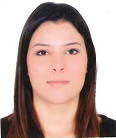
Friday, January 28, 2022 at 1pm
The development of label-free biosensors based on electrical detection of molecules is of great interest for early diagnosis of biomarkers in personalized medicine, environmental monitoring and bio-defence.In this aim, many studies are currently being carried out on sensing devices based on semiconductive silicon nanowires, for electrical detection of DNA or proteins by field-effect with high sensitivity and specificity. However, silicon nanowires exhibit some physicochemical instability when immerging in saline physiological solutions. It leads to some non-reliability of the measurements which, in fact, become limiting. To overcome these critical issues, other kinds of semiconducting nanomaterials or new nanowire architectures involving Si core with a passivating metal oxide shell are under investigation. In particular, silicon carbide (SiC) is a semiconductor that can advantageously replace silicon. Indeed, SiC is already used for many biomedical applications: covering prostheses and stents, biomimetic structures and cell reconstruction. Very recently, it has emerged as the best semiconductor candidate, chemically inert, biocompatible, which offers new perspectives notably for integration of in-vivo sensors. The subject of the seminar is the development of SiC-based nanolines, their integration in NWFETs, their electrical characterization, their functionalization and integration in microfluidic cells in order to be able to emphasize the electrical detection of DNA or proteins in a liquid medium.


